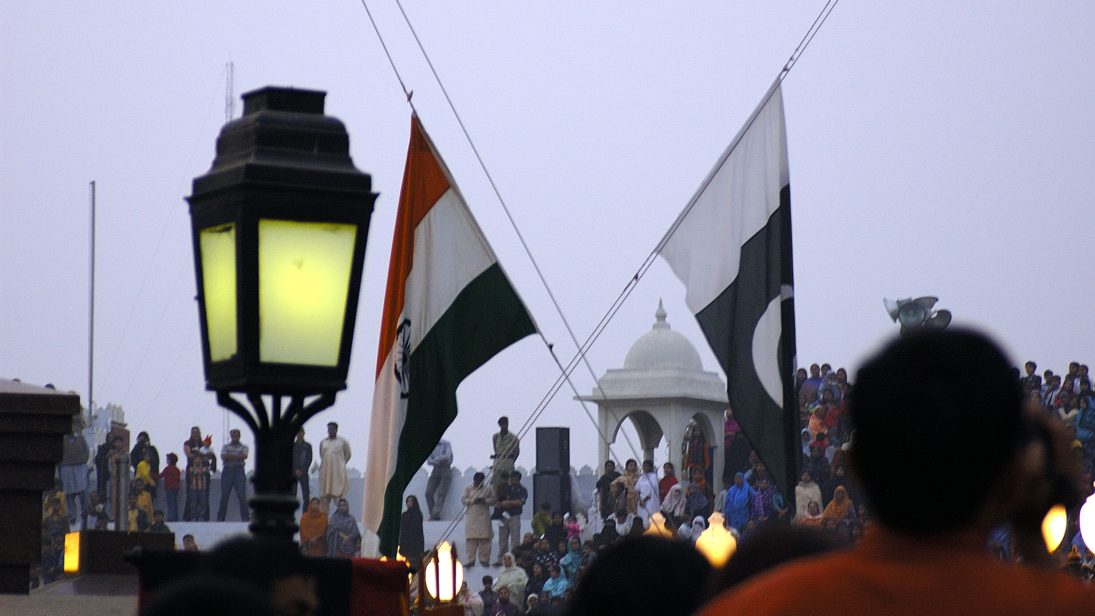
In his speech after achieving victory at the polls on July 25, Pakistan’s Prime Minister (PM) Imran Khan highlighted a desire to improve relations with India, suggesting opening trade linkages with Pakistan’s eastern neighbor and holding dialogue to discuss outstanding issues such as Kashmir. Indian Prime Minister Narendra Modi reciprocated by congratulating Khan on his electoral victory and stated that India is “ready to enter a new era of relations with Pakistan.” Shah Mahmood Qureshi, Pakistan’s newly appointed foreign minister, also commented on relations with India during his first press conference, voicing that complex differences between the two states are not resolvable overnight, and thus engagement and resumption of dialogue is necessary.
While Khan has not yet presented a concrete roadmap to resolve the political stalemate with India, his willingness to approach strained India-Pakistan relations to rebuild trust with New Delhi is a sign of maturity on his part. Such a step is imperative for Pakistan’s economic revival – another of Khan’s top priorities – as there is much to gain from positive relations with the country.
Why Economic Connectivity is Imperative
In his first address to the nation as prime minister, Khan highlighted the state of the economy that he has inherited–facing an acute balance of payment crisis. Pakistan’s foreign debt has reached USD$229 billion, most of which was borrowed during the last 10 years, Khan announced. Pakistan continues to borrow to balance interests on existing debts, incurring more debt in turn. Pakistan’s heavy reliance on external debt is predicted to escalate from USD $21.5 billion (7.1 percent of GDP in 2017) to USD$45 billion (9 percent of GDP) by 2023. If not fixed, this acute economic downturn can lead the country to a serious inflation crisis. With the Pakistani rupee devaluing rapidly, the new government will have to improve the country’s image, attract diversified foreign investment from sources besides China, and address this escalating economic crisis before it destabilizes the economy beyond repair. To grapple with these acute economic challenges, therefore, Pakistan needs peace with its neighbors.
Lessons from Accommodation of a Rising India
In the backdrop of globalization, India’s historic economic reforms of the early 1990s, led by then Finance Minister Manmohan Singh, (later prime minister from 2004 to 2014) opened India to the world. Through economic integration and constructive diplomatic efforts, India has improved its relations with other countries and its standing in the international community. Today, India has surpassed Japan to become the world’s third-largest economy in purchasing power parity. As such, India aspires to achieve great power status and New Delhi prioritizes increasing its material position through economic growth and military strength. However, Pakistan perceives India’s actions as a threat. Through the civil nuclear deal, the United States was able to provide India with the benefits of being a nuclear power despite it not being a signatory to Nuclear Nonproliferation Treaty or a member of the Nuclear Suppliers Group(NSG). The U.S.-backed NSG waiver for India in 2008 enabled its integration into global nuclear commerce, and this was based on both countries’ aligned geostrategic interests in the broader Indo-Pacific region.
This example could be a lesson for Pakistan to focus on enhancing its own capabilities and improving its image through effective diplomacy with different countries, irrespective of what India is doing or not doing in the region. The Indo-US partnership should not be seen as a hindrance to resuming dialogue between India and Pakistan–peace between India and Pakistan could provide Islamabad the space to grow economically. And this economic strength could in turn help Pakistan connect its economy globally and attract international cooperation.

Addressing Challenges to Peace
Decades-old tensions, such as a shared troubled history, mutual suspicion and hostility, territorial disputes, and cross-border terrorism, remain challenges to future improvement in Indo-Pak bilateral relations. Without dialogue at the state level, non-state actors may gain more space to steer narratives towards the negative, furthering a focal point of India-Pakistan tensions. Another skirmish at the border has the potential to escalate to the nuclear level, and this is unlikely to change if Khan does not revive the dialogue process during peacetime. Additionally, open communication, information sharing, and routine connectivity will help build understanding between the two states, should Khan prioritize alleviating older obstacles in ties with India.
Kashmir remains a source of tension in India-Pakistan relations, with Kashmiris suffering every day. Pakistan can serve Kashmiris best by initiating a dialogue process with India. Khan should not set a precondition for the resumption of dialogue. Achieving a degree of success and trust in other fields can lead the two states to eventually discuss resolution of the Kashmir issue.
Laying the Groundwork to Improve Relations with India?
The general public in Pakistan seems to have imparted a greater degree of trust in Khan for the changes he has promised to bring. He will have to garner not only national support but also that of the security apparatus in Pakistan to realize the need for a rapprochement with India, as peace is imperative to achieving his goals. In India, Khan might use his cricketing background and charisma to mobilize public and political support, convincing them of the importance of peace between neighbors.
Modi and Khan have the potential to build a new legacy by promoting peace, socio-economic growth, and prosperity for the betterment of the people. This is especially critical now that the United States seems to no longer desire the role of a crisis manager in the region, due to its shifting geostrategic focus from South Asia to the Indo-Pacific. With limited international intervention, Islamabad and New Delhi must take steps of their own volition, minimizing misadventures, avoiding hate speech and war hysteria, and institutionalizing mature mechanisms to stabilize deterrence by resetting relations with India.
***
Click here to read this article in Urdu.
Image 1: Giridhar Appaji Nag via Flickr Images
Image 2: Arif Ali via Getty Images


